Can Dogs Eat Brown Sugar? [Is it bad?]
Most dogs love sweet treats, especially brown sugar. They also enjoy crunchy fruits, vegetables, and even meat. But some everyday human foods can cause problems for your dog.
What happens if your dog eats something containing brown sugar? Or even eats the raw ingredient. Can dogs eat brown sugar?
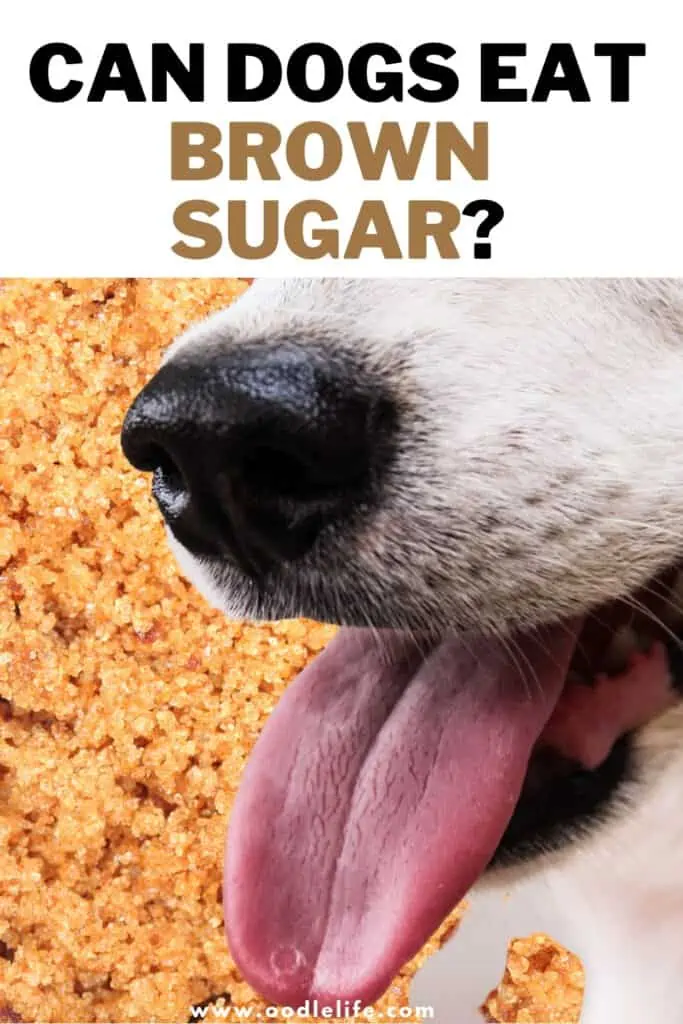
As a dog expert I get asked all the time about whether certain foods should be eaten by dogs, and how worried we should be if our dog steals a certain type of food and wolfs it down.
In this article, you will learn that
- Dogs can eat brown sugar, but only in moderation
- It’s not recommended to give your dog brown sugar regularly as it can lead to health complications
- There are many other foods that are suitable for dogs and better than giving them brown sugar
Why Is Brown Sugar OK for Dogs (in small amounts)
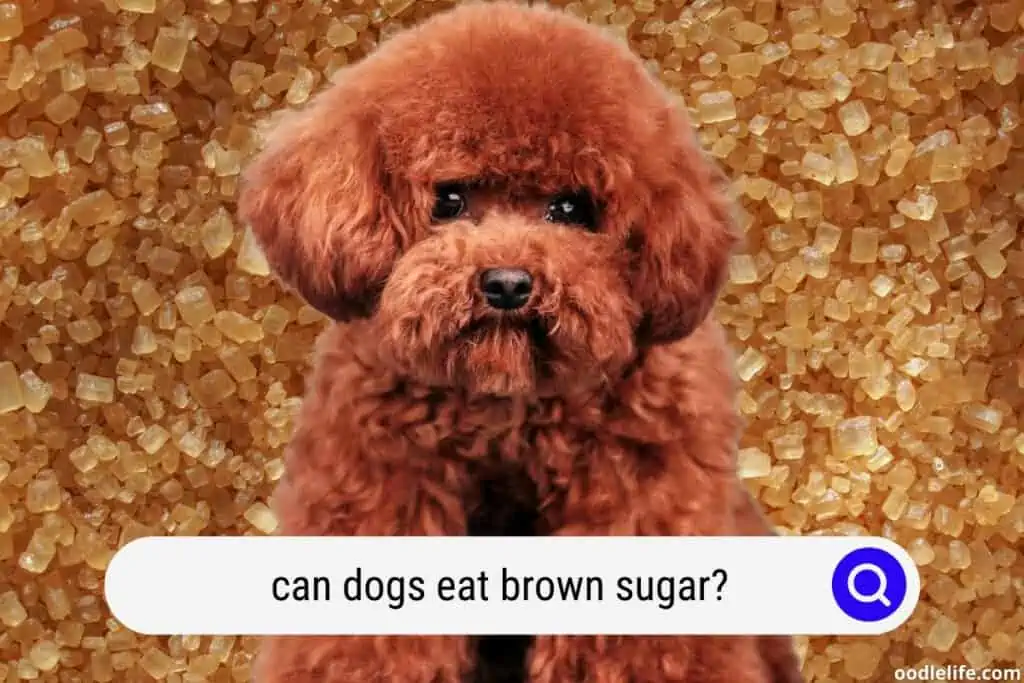
Brown sugar is a type of white granulated sugar that has molasses added to it. It’s often used as a topping or flavoring for baked goods, desserts, and other food items.
Dogs can eat brown sugar, but they shouldn’t consume too much of it. The problem is that brown sugar contains high levels of sucrose (table sugar) and fructose, both of which are highly processed carbohydrates.
These sugars can cause digestive issues such as diarrhea, vomiting, and bloating. In addition, they can contribute to obesity and diabetes (Vet Hospital).
Human Food Health Traps for Dogs
Each year, veterinarians have to deal with about 20,000 plus emergency cases involving pets eating human food. Not only are these accidents hard on our pets, but they’re also hard on us financially. Typically, they can range from $400-$5,000 with the price going up with the increasing severity of an emergency.

The most common foods that dogs eat are ingredients used for cooking. Everyone knows that giving a dog chocolate is out of the question. Chocolate will truly poison a pup – but a little brown sugar wouldn’t hurt, right?
Why Do Dogs Seem Drawn To Sweet Things?

Dogs are naturally attracted to sweet tastes.
Sugar tastes just as good to a dog (or any animal) as it does to a person. Dogs have no way of knowing how dangerous sweet ingredients can be to them. They just live to eat!
Why Should You AVOID Giving Your Dog Sugar?
Don’t give your dog any types of sugars. Whether it is caramel sauce, glucose, fructose, barley malt syrup, brown rice syrup, corn syrup, or cane juice – it is all bad news for dogs.
Don’t give your dog any types of sugars. Sugar is bad for dogs because it can make them sick and also make them fat.
Dogs can eat a little brown sugar, but it’s not recommended to give them this type of sugar often because it can make them sick. There are other foods that are better for dogs than giving them brown sugar.
And artificial sugar is even worse! Fake sugars like xylitol are poisonous for dogs. Some brands of candy and chewing gum contain xylitol – and if eaten by a dog this is very poisonous. Expect vomiting and severe abdominal symptoms for your dog.
Sweet Treats for Dogs
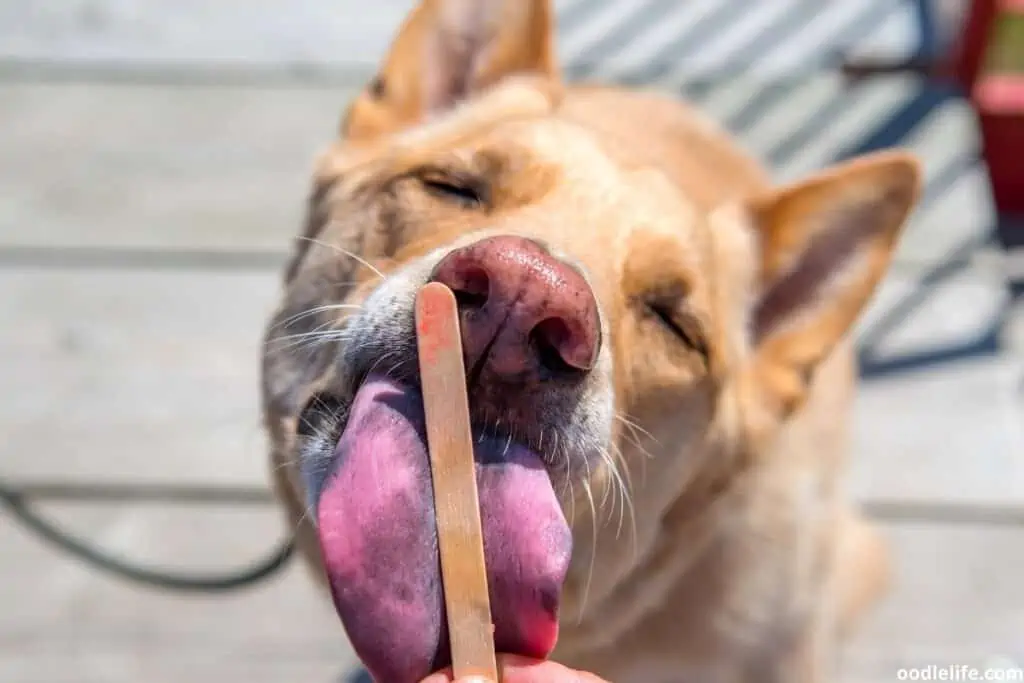
Dogs really don’t need sweet treats. But if you are absolutely convinced your dog has a sweet tooth – consider giving them healthy fruits. These should only ever be in moderation and no more than 10% of the family calorie intake.
- Blueberries are a great dog training treat. They are low in calories, and very low in sugar.
- Apples (or dehydrated apples) are safe in small quantities. Don;t give them the core, and DEFINITELY do not give the seeds from an apple to a dog.
- Bananas and pears are also safe treats in small quantities. In fact, many homemade dog biscuits and cakes use them as a base ingredient
- Sweet potato is a great dog snack and ingredient for DIY dog treats.
- Bell peppers (capsicum) are safe for dogs and an excellent sweet treat
What Happens if a Dog Eats Brown Sugar Long Term?
There are two answers to this question. Long term and short term use.
If you’re wondering if it’s okay to give your dog a little brown sugar, the answer is yes (as in it is not toxic) – but only in strictmoderation. Too much brown sugar can cause digestive problems like diarrhea, vomiting, and bloating. It can also contribute to obesity and diabetes in dogs.
There is no justifiable reason to ever feed a dog brown sugar long term. It simply does NOT need to be a part of the dog’s diet.
Brown sugar can cause life-threatening diseases in dogs if they eat it on a daily basis, including diabetes and heart disease.
What To Do If Your Dog Ate Brown Sugar
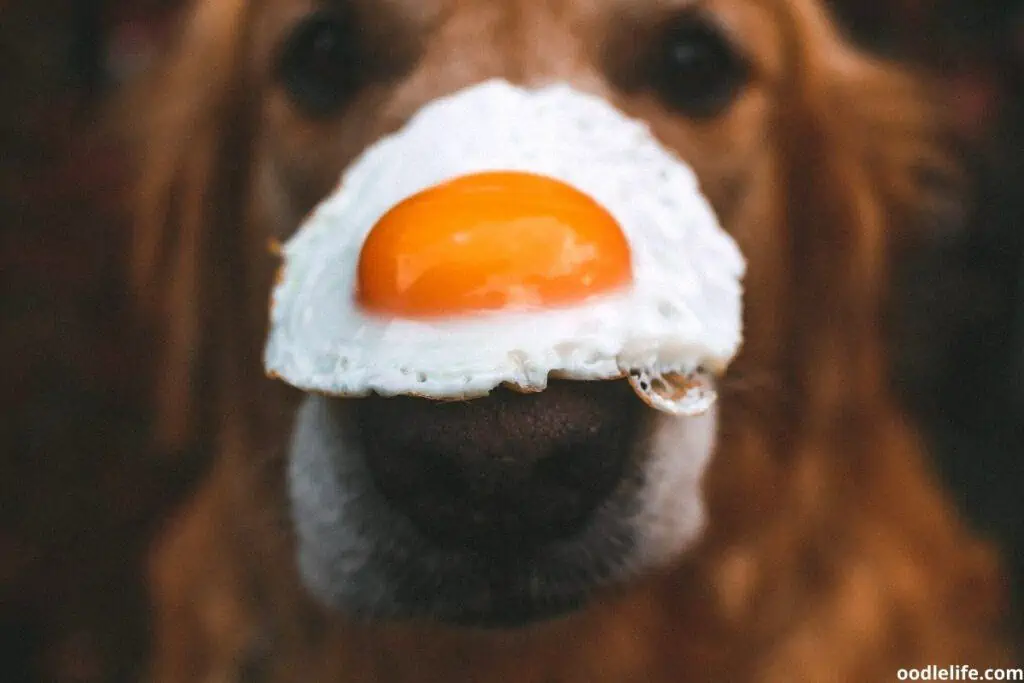
The chances are good that your dog will be fine if he or she has just eaten a little bit of brown sugar. Still, it’s worth taking a look to ensure that your dog doesn’t get an upset stomach, have diarrhea, or vomit.
The bigger problem will come if your dog eats more than a good handful of brown sugar. That’s a considerable amount of sugar for a dog’s digestive system to break down. If your dog does this or throws up more than once, take him to the veterinarian.
Sugar can cause a lot of problems for dogs, the most serious of which is acute pancreatitis. This is a condition in which the pancreas becomes inflamed and can no longer function properly. Without the pancreas, the dog can’t digest food or absorb nutrients, which can lead to malnutrition and other serious health problems.
Any suspicious symptoms mean an emergency trip to the Vet.
If your dog seems fine – still take the time to monitor them closely for symptoms for 24 hours. Do not leave your dog alone during this time.
Other Bad Sugars For Dogs
Keep an eye out for any of the following types of problem sugars that you may find in the ingredient list of a sugary treat your dog has mistakenly eaten.
- Artificial sugar** (The worst)
- Brown sugar
- Cane juice
- Corn syrup
- Glucose and other refined sugar forms
- Fructose
- Barley malt syrup
- Rice syrup
Furctose or fruit sugar is… not too bad in small doses. It makes the list because it is NOT ideal for a dog but they will typically be okay. So if your dog nabs some mulberries or blueberries – your stress level should be low.
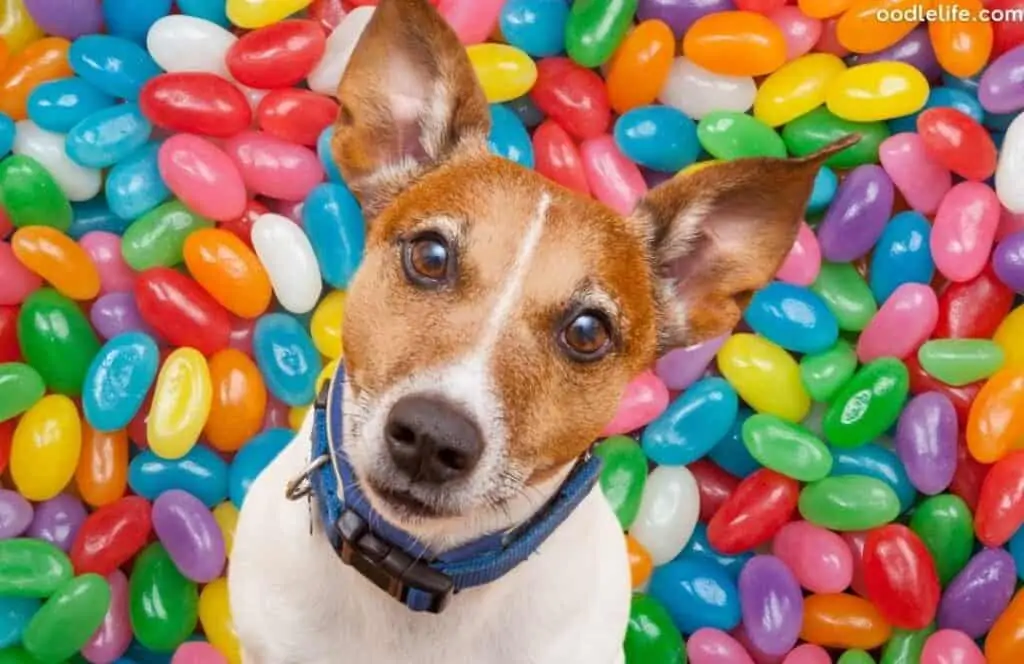
Brown Sugar for Dogs Summary
- Your dog CAN eat brown sugar safely, but should not. It has basically no nutritional value for a canine.
- Large volumes of brown sugar can cause serious illness
- Long-term brown sugar intake can give rise to chronic illnesses
- Dogs do NOT need to have any carbohydrates, let alone simple carbs (sugars)
So will brown sugar hurt a dog? Long-term yes, short-term unlikely. It all depends don’t the volume eaten though.
Brown sugar is not for dogs, even if they go nuts for the taste – it is NOT something worth including in their diet.